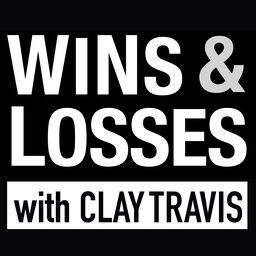Clay Travis goes in depth with Washington State Head Football Coach Mike Leach
Washington State Head football coach Mike Leach joins Clay Travis to discuss his life and career in the game of football. From his childhood and upbringing in Wyoming, to getting his law degree at Pepperdine, to his time spent running camps in Japan and coaching in Finland, and all the steps in between he took to get to where he is today, with some classic Mike Leach twists and turns along the way.
Learn more about your ad-choices at https://www.iheartpodcastnetwork.com
 Wins & Losses with Clay Travis
Wins & Losses with Clay Travis


